Continued from “A Ghost Story”…..
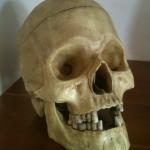 Louis O’Neill Mellinger, my grandfather, was a magician. Not the type of magician that does sleight of hand tricks, but the sort of magician who, from beyond the grave, could materialize a human skull on the upper left corner of his oak roll top desk in such detail that I was convinced it was actually there. For decades I lived with two equally unsavory thoughts—either my whole family was lying to me when they said that skull didn’t exist, or I was delusional.
Louis O’Neill Mellinger, my grandfather, was a magician. Not the type of magician that does sleight of hand tricks, but the sort of magician who, from beyond the grave, could materialize a human skull on the upper left corner of his oak roll top desk in such detail that I was convinced it was actually there. For decades I lived with two equally unsavory thoughts—either my whole family was lying to me when they said that skull didn’t exist, or I was delusional.
Several months ago, and for some cosmic reason that only spirits can fathom, Grandpa decided it was time to clue me in. Through Heather, a friend of mine that sees dead people, he explained that the skull was a construct, a tool that he used in his work. It existed on another plane, and so not everyone could see it. He was glad that I had seen it and that I practiced magic.
Egads! There wasn’t just a skull, there was a whole skeleton in the closet of Daddy’s side of the family. Everything I knew about those ancestors needed to be rethought. My niece sent me Grandpa’s obituary from the Princeton Alumni Weekly, and that gave me several places to start digging. I spent hours on the web looking for information and called my older brother Louis a couple times to ask him what he remembered about Grandpa. But I still needed some answers that only Grandpa could supply. I asked Heather to ask him questions for me. She called back a few hours later and said “He’s just messin’ with me. I’m not getting straight answers. He wants to talk to you.”
“I can’t do that.”
“You can. Just do a journey to the spirit world and ask for him. You’ve done that before with power animals you can do it with spirits.”
Heather was correct, damn it. In theory I could do it. I’d done similar things before and I did have a connection to my grandfather. Since his visit I could feel him around the house and occasionally “feel” answers to questions. So if I wanted Grandpa’s story, I’d have to travel again. He had very neatly forced me to stretch my magic muscles.
And so one night I crawled into bed, put up a circle, and cleared my mind of all the ten thousand things of the day. When I was relaxed and floating, I imagined myself in a tiny, circular, stone house with tapestries on the walls and thick, brightly patterned rugs on the floor. There was a fire in the hearth at the center of the room and its smoke drifted lazily up through the smoke hole in the center of the roof. I was lying on a rug staring into the flames. When I was ready, I drifted up through the smoke hole and into the velvet night.
Grandpa was right there. I couldn’t see him or hear him, but his presence was palpable and his words slid soundlessly into my open mind. “Too bad I died before you were born. We could’ve had wonderful times.” He radiated love. I burst into tears. After I’d calmed down and said “Hi”, I asked him to tell me about Slickville and his life with Grandma. There was an emptiness, and he was gone. I was completely alone. Just when I’d decided that I’d imagined the whole thing and hadn’t really been talking to my Grandpa, he came back with my grandmother. I burst into tears again and told Grandma how much I loved her and thanked her again for my piano. Daddy never would have bought it for me if she hadn’t told him to.
Being with my grandparents was beautiful. I felt so safe and so loved. We talked and talked.
When I returned back the way I’d come and stretched and opened my eyes, the first thing I did was check the clock. I’d been gone almost an hour and a half, but it felt like maybe a half hour at most.
The tale that follows is pieced together from what my grandparents told me and what I was able to discover through my web research and conversations with my brother and my parents. The source of each piece of information should be obvious from the context of the story.
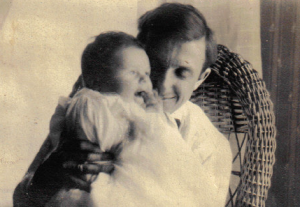
According to his obituary in the Princeton Alumni Weekly, Grandpa was born in Pretolia, Pennsylvania on September 10, 1877. This makes him a Virgo with a Libra Moon, Libra Mercury, and Libra Venus; and Mars conjunct Saturn in Pisces opposing his Virgo Sun. He grew up in coal mining towns because his father was a mining superintendent. Grandpa says he was sick a lot as a child and spent much of his time out of his body exploring the “planes”. Back in those days, before antibiotics and IV’s, when people got really sick, they stayed sick a long time. Unfortunately, he probably did become quite familiar with altered states of consciousness and separate realities. But he must have recovered completely because he attended The Kiski School, an exclusively male academy that requires all of its students to participate in sports. (My father went there too). A June 12, 1901 New York Times item on the Princeton graduation social events lists him as graduating with honors from the college of Civil Engineering. (My father also graduated from Princeton in 1933 in Civil Engineering)* Grandpa continued his magical education at Princeton as well. He says one of the librarians was metaphysically inclined and introduced him to the university’s excellent collection of occult books. He would have had a head start on most of us modern students of magic because all college educated people at the turn of the century had a classical education, no matter what their major was, and most could read Latin. Grandpa was already well versed in Greek Mythology and all the pagan philosophers.
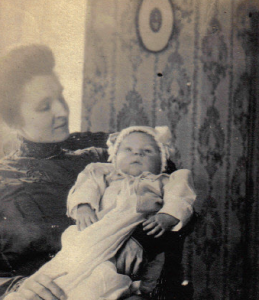
My grandmother, Florence Glenare Millin, was born in Pennsylvania in 1884, although I have no information about where. Her family was probably at least fairly well off because she went to college and read Latin and Greek and became a school teacher. Remember, this was the turn of the century when very few women were college educated and even fewer actually supported themselves at jobs that didn’t involve housekeeping, sweat shops, or prostitution. She and grandpa met at the boarding house in Reynoldsville, Pennsylvania where they were both living. I got this information from my brother, since neither of my grandparents were very forthcoming about their romantic life. I like to imagine intimate conversations on the porch swing amping up into clandestine midnight visits across the hall. I can feel them both huffing indignantly. Perhaps it didn’t happen this way, but if it did they were careful, because my father was born October 27, 1910, over a year after they were married on June 10, 1909. Grandpa would have been 32 and Grandma would have been 25—the confirmed bachelor married the spinster school marm.
In 1916 the Cambria Steel Company, a subsidiary of Bethlehem Steel, hired Grandpa to open new coal mines in the town of Slickville, Pennsylvania (named after Donald Slick, a company bigwig). He remained there as superintendant of mines until well into the 1930’s. Daddy was six years old and Uncle Bob and Aunt Doris, his twin brother and sister, were three when they moved there. He remembers living in a tiny shack while their house overlooking the town was being built and Grandpa supervised the town construction and the opening of the mines—there were eventually five of them. Grandma does not have fond memories of Slickville. Her spirit told me it was rough and dirty and ugly and she can think of hundreds of other places she would rather have lived. But she loved her family and dealt with the squalor and danger as best she could. Grandpa says she was a “brick”,
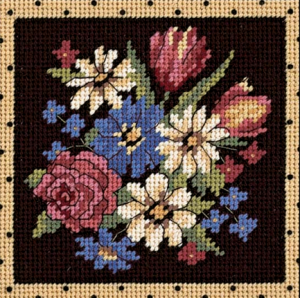
and managed the house, children, and help with a strong hand. They had two maids and a cook that came up from the town. Grandma says she could have done just fine with only one maid, but the miners’ wives and especially the widows needed the work. (The company didn’t give the widows any restitution when their husbands were killed in the mine, but they allowed them to stay in the house—if they could pay the rent.) Whenever Grandma heard about sickness in a miner’s family or some other trouble she always sent Grandpa and my father out with a basket of food and clothing and possibly a piece of needlepoint. The basket was usually returned with a bottle of homemade wine or pickles or preserves.
Slickville was a model “coal patch town” with good housing for the miners and their families. A few sources were of the opinion that
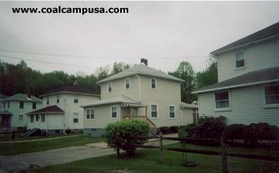
the coal companies began building these towns to keep workers from joining the United Mine Workers of America. During Grandpa’s time the miners were constantly striking for better wages and pitched battles and violence were not uncommon. The miners themselves were immigrants from all over Europe, from Wales to the Ukraine, with a few black workers from the South thrown in for good measure. This, of course, meant that there were a variety of churches in Slickville, including St. Sylvester’s Catholic Church (Roman Catholic), Holy Ghost Ukrainian Orthodox Church (Catholic, but not Roman Catholic), and a Baptist Church.
And then there was the Ku Klux Klan. In January, 1922 the Johnstown Tribune (Johnstown, Pennsylvania was the home of Cambria Steel, Grandpa’s employer) reported that “a large class of prominent men had been initiated into a local organization of the Klu Klux Klan”. It went on to comment that the Klan’s work was progressing “most satisfactorily” throughout this section. It later reported several cross burnings and public appearances of the Klan.** As I was reading about this I asked Grandpa if he’d been a member of the Klan. An irritated “NO” slammed solidly into my brain. Nearby Slickville would have been a tinderbox looking for a match, and Grandpa informed me that he “angeled up” whenever he left the house. (He likes to keep his vocabulary up to date.)
“So does that mean you performed the Lesser Banishing Ritual of the Pentagram?” I asked hopefully.
“Yes, every morning and on touchy days sometimes 2 or 3 more times. There was also a tight circle around our house and another one around the town.”
“What about the mines?” I had visions of Grandpa happily communing with the knockers and gnomes and other earth elementals. He soon disabused me of this romantic notion.
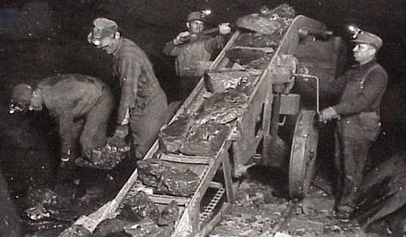
“The mines were hell-holes,” he replied. “You have no idea how terrible the working conditions were. I hated going into them, but I went down every day to make sure they were as safe as possible and to figure out where to make the new cuts. The miners were well aware of the earth elementals and did a much better job of appeasing them than I could have.” Grandpa says he didn’t use magic in the mines; he used his engineering experience and common sense. I suspect, however, that a fair amount of intuition seasoned that common sense, and I class intuition with magic—especially when it’s a magician who’s doing the intuiting. And I bet those earth elementals helped him out a lot more than he thought they did. Yes, Grandpa, I hear you huffing.
He also was also constantly sending out his spirit guides to check for possible problems. He says it was best if you could get to a situation and defuse it before it became a problem. His Moon, Mercury, and Venus in Libra, the sign of the diplomat and peacemaker, would have made him a master negotiator.
So why did Grandpa decide to become a mining engineer if he hated the mines? He was raised in mining towns, he must have known what they were like. Actually he says he didn’t, not really. His father never took him near the mines and they seldom went into the town when he was a child. When he got older he went to boarding school at Kiski. It was close, but he only came home for weekend visits and holidays and so he still didn’t spend any time in the mines or with the miners. Grandpa was good at math, enjoyed engineering, he had all the connections, and his parents expected him to become a mining superintendent; and so it was kind of a done deal—Grandpa would follow in his father’s footsteps. It was what Mellingers did.
Grandpa, however, did not make the mistake his father had. He occasionally took my father to work with him (but never down in the mines, he says). And he always took him when he visited in the town and attended the gathers. They must have been amazing parties. Grandpa sent me a lovely vision of homemade wine, ethnic food, screaming fiddles, and people dancing till they dropped. Daddy remembers the miners driving wagons full of grapes through town in the fall and everyone making wine. So my father would have been able to talk to the miners, listen to their problems, and observe first hand how they lived. I suspect that this is why my father did not become a mining superintendent, even though the mines were still going strong when he graduated in 1933 and he had all the right connections.
Grandpa also made frequent visits to the town witch. She was a mining widow—Grandpa thinks she was Czechoslovakian. She made her living selling healing herbs from her garden and charms for every occasion. She was also the town midwife, counselor, and problem solver. He says the Company had a doctor available for the miners—money was taken out of their paychecks to pay for his supplies, housing, and salary—but even if you were lucky enough to catch him during one of his sober moments, he was still a lousy doctor. The miners and their families preferred the witch. My grandfather spent many evenings nursing a glass of wine in her exotic smelling kitchen and pumping her for information about the politics and problems of the community. Although Grandpa says he was careful never to show any real interest, he still managed to occasionally guide the conversation in the direction of the magical uses of herbs and how she made her charms and spells and he managed to learn quite a bit. But if she was half the witch Grandpa says she was, I have no doubt that she was well aware that the Superintendent of Mines was a magic user.
Grandma never approved of her husband’s magic. She was intelligent and well educated and I’m sure she understood what he was doing, but she didn’t like it. When I asked her why, she said it was unnatural meddling and best left alone. I suspect that that wasn’t the only reason she was against it. Grandpa was a busy man, often working weekends and into the night, and hours spent studying and practicing magic would have taken him away from his already neglected family. When he joined the Scottish Rite 38 N.J. Masonic Lodge in Princeton on June 29, 1921, even more of his precious time would have been lost to her as he participated in the events there. And then there was the fact that they lived in a town full of blacks and Catholics sitting over basements full of wine. I have no doubt that the Ku Klux Klan would have loved to go to work on Slickville. And if they found out the mining superintendent was a magic user, all those “prominent men” in Johnstown who were Klan members would have taken his job and thrown Slickville to the Klan. My father says his mother had a code word that she used when Grandpa or the kids began talking about things they shouldn’t. It was “Eskimo”. I used to think that Grandma, being the proper, socially conscious person that I knew her to be, used the word when the conversation drifted toward off color topics, but I now understand that she used it to make sure no one found out about her husband’s secret. She must have lived in constant fear of this, and I can only imagine the stress it caused in their marriage.
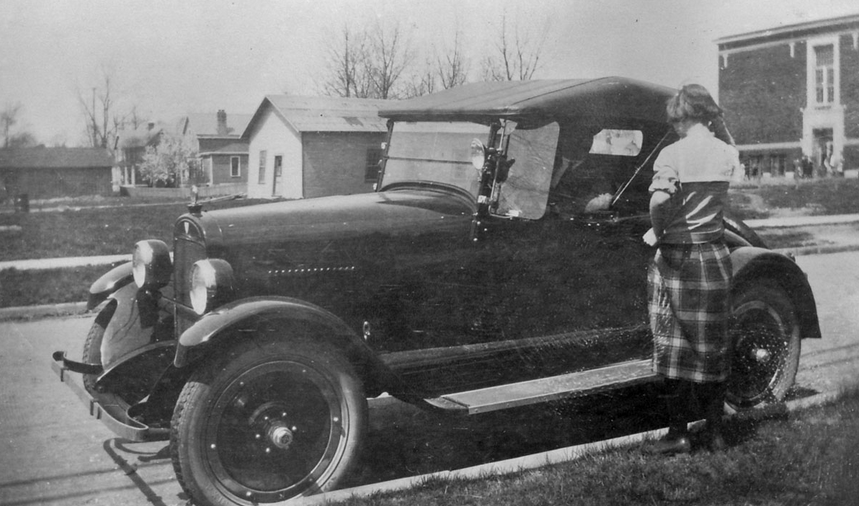
My Grandfather died on April 27, 1944 one year before WWII ended and eight and a half years before I was born. My older brother Louis was only 5. Thomas Fisher, Grandpa’s college roommate and lifelong friend wrote this about him in his obituary in the Princeton Alumni Weekly: “The men employed by Buck*** were the last to join the National Miner’s Union, the reason being that they had faith and confidence in him, knowing that he was fair and just and always able to see the side of the workman as well as the demands of his employers. Often he was cautioned by his superiors, when agitators were afield, not to drive around at night in his old Maxwell, but Buck considered this to be in the line of duty and was unafraid. He was never harmed.”
I’m very proud of my Grandpa. He was an amazing man, and one of the many unsung heroes of this world— the men and women who used their magical ability to make life easier, safer, and more bearable for humanity. Magic has been taboo throughout most of the thousands of years of our written history, and since the Age of Reason, people have pretty much believed that anyone who claims to use magic or “supernatural abilities” is a deluded fool. For these reasons, magic users have always practiced in silence and secret, and we will never know how much misery and disaster down through the ages these brave, talented people have spared the Earth.
*
- Grandpa’s father was a divisional coal mining superintendent named George Mellinger.
- Grandpa was a coal mining engineer and superintendent for the Cambria Steel Company.
- His son, my father, was one of the first geotechnical engineers, a branch of civil engineering that includes mining engineers.
- My mother was the first woman to graduate with a bachelor’s degree in geology from Ohio State University.
- My older brother has a bachelor’s degree in geology and bids jobs for a company that reclaims coal strip mines.
- His daughter and son-in-law both have masters’ degrees in geology.
- My husband is a geotechnical engineer and so are both my sons.
- Earth permeates my family’s soul.
** Johnstown, Pennsylvania: 1895-1936, by Randy Whittle.
***Grandpa was unable or possibly unwilling to tell me why his college nickname was Buck.


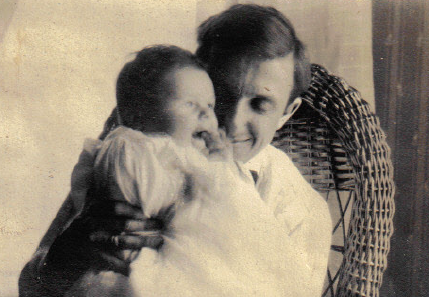

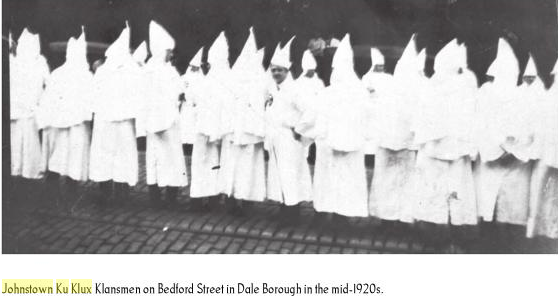
9 thoughts on “Magic in a Mining Town”
What a beautiful piece about your grandfather, Chrissy! He sounds like an incredible man and I am so happy you shared this with your readers. One of my favorite blog posts to date.
I enjoyed this post a great deal.
Oh Chrissy,
What a gift!! For you and for those lucky enough to read your post! Mining is still a very dangerous business. Slickville was lucky to have an engineer with not only education but special contact’s. …intuition you say.
It was really hard to write. I’m glad it came out OK.
What a great story.
Chrissy, this is absolutely beautiful! Thank you not only for writing it, but also for doing all the spirit journeying required to get some of the information. You come from good stock, indeed. Your own contributions are so valuable as is evidenced in all you so generously share with all of us. Blessed be, Chrissy. We are so incredibly blessed to have you!
Namaste’
Rebecca
Thank you, Rebecca
I read your story like four or five times. My grandfather was a Polish immigrant miner in Slickville, PA during those years. Like you, I was too young to get to know my grandfather; he died when I was 5 yrs. I only remember taking walks with him before he died of black lung. One summer he befriended a black bird, a small one, that he carried around on his finger. It was miraculous. The bird wild and all coming down out of the peach tree in the back yard to be my grandfather’s friend. And rest on his finger.
He used to rub his beard on my peachy and smooth cheeks. I remember trying run away when he rubbed one me. Then too he smoked a pipe and the aroma was wonderful, like a cherry flavored sweet tobacco. This is my memory of my grandfather. Later I would spend evenings with my grandmother who cried tears almost each night as she missed loving him in person.
About 7 years ago, I went back to Slickville to look up a distant cousin; we met a St. Sylvester’s Church. Her name was Jo Ann G. who has passed away.
I now wonder if my grandfather and yours (grandfather’s) paths crossed. Maybe so. Seems these two magical men would have connected at some point on some level. Where else could my grandfather have learned to tame a wild black bird?
I heretofore have never thought of my grandfather as anything magical or any type of a magician-now I think maybe so…..
John
jmjhilinski@bellsouth.net
John, your comment brought tears to my eyes. Your grandfather sounds like a wonderful and, yes, magical man. Thank you so so much for telling me about him.Black lung is an awful disease and many miners died from it. Our country’s truly amazing and important heros seldom make it into history books.